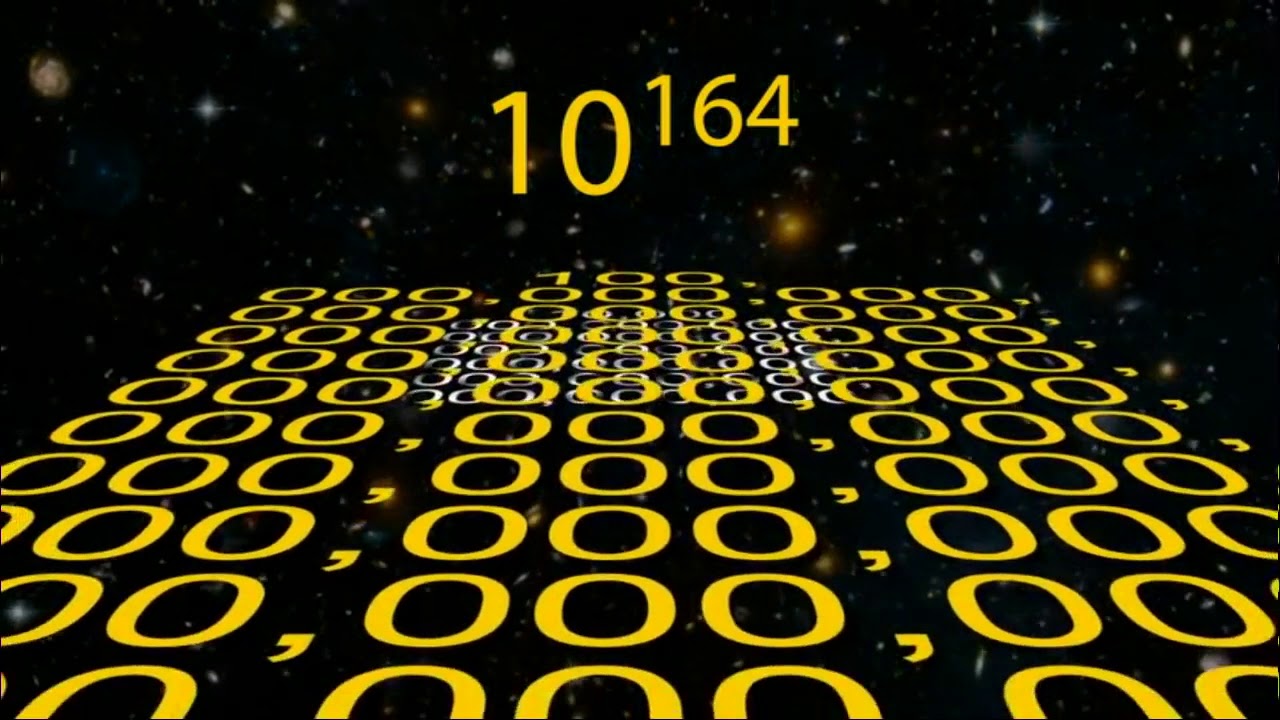Creating A Protein By Chance Is Impossible
In other God Created Life articles we’ve provided qualitative arguments proving that life wasn’t created by chance in a Primordial Soup nor transported to earth from some other planet. In fact, James Tour made it clear that scientists have no idea how life began. He also pointed out that explaining how life began requires explaining how the first cell was created. So we started looking into the cell for a better understanding of how it works. It’s now time to use that understanding to prove the cell wasn’t created by random chance over billions of years as some scientists would have us believe. Specifically, we’ll use our new understanding of the protein and how each one is made within the cell to prove this point.
Here’s the key data point: researchers have shown that creating the first protein, even just a somewhat simple one, by random accident is unimaginably difficult. In fact, because proteins are so extremely complex, the probability of creating the first protein by accident is one chance in 10164. One chance in 10164 is equivalent to saying it’s impossible.
Let’s look into how such a number was created and who created it.
Is 10164 Really A Reliable Estimate?
Deriving this number started with Dr. Douglas Axe, Professor of Molecular Biology at Biola University and a UC Berkeley, Caltech and Cambridge trained researcher who’s work has been published in many scientific journals and books. In his book, Undeniable; How Biology Confirms Our Intuition That Life Is Designed, Axe describes his extensive research and experimentation with proteins.
Specifically, Axe researched the correspondence between amino acid chains and their ability to fold into 3 dimensional shapes so they can perform a specific function. Based on his experiments with a relatively simple, 150 amino acid protein found in bacteria, Axe calculated that the ratio of amino acid chains that fold into functional proteins compared to the total number of possible chains is 1 in 1077. In other words, the probability of creating an amino acid chain, by accident, that can fold into a productive protein is 1 chance in 1077 – implying that functional proteins would be inconceivably rare if they were created solely by accident. Axe has since refined that number in subsequent research to 1074.
Dr. Stephen Meyer then combined this number with two other known characteristics of proteins. Dr. Meyer is also a Cambridge trained researcher, Director of the Center for Science and Culture at the Discovery Institute and a renowned author and speaker. In his book, Signature In The Cell; DNA And The Evidence For Intelligent Design, Dr. Meyer discusses these two other characteristics:
- In chemistry, atoms and other elements join and stay together with a “bond”. There are several types of bonds but in all proteins, for some reason, amino acids only bind together with one type – the peptide bond. However, when amino acids are mixed in a test tube and allowed to interact freely, they form both peptide and non-peptide bonds and do so in roughly equal amounts. Thus, the probability of two amino acids joining together with a peptide bond is roughly 50-50. So, skipping the math, the probability of creating a protein by accident using a string of 150 amino acids joined together using only peptide bonds is one chance in 1045
- The other characteristic is equally odd. In nature, all amino acids are created in two forms – mirror images of each other. There’s a “right-handed” or “D-form” version and there’s a “left-handed” or “L-form” version, both occurring in roughly equal amounts. Again, for whatever reason, viable, functioning proteins are made of “left-handed” amino acids only. Similar to the peptide bond discussion above, the probability of starting a string with two left-handed/L-form amino acids is roughly 50-50. So, again skipping the math, the probability of creating a protein by accident using a string of 150 left-handed amino acids is one chance in 1045
According to Meyer, combining all three of these probabilities leads to the above mentioned probability that creating a functioning protein by accident is one chance in 10164
In his book, Meyer also reminds us, for reference, that there are approximately 1065 atoms in the universe and 1080 corresponding protons, neutrons and electrons.
It’s important that you watch this 9 1/2 minute video from Illustra Media so you can see for yourself just how impossible it is to create a protein by accident. For starters, 10164 is a very difficult number to comprehend. You might think “sure, fine, but no problem. Billions of years is a long time. Anything can happen in that amount of time.” Well, not so much. This video proves that even using inconceivably ideal conditions, it’s impossible to create just one protein by chance. The video also includes an excellent analogy making it clear that all the time in the universe – not just on earth – would be insufficient for a single functional protein to be created by accident!
Key Conclusions From The Video
- Amino acids are arranged in a very specific manner within proteins much like letters are arranged to create words and sentences.
- The probability of creating a single smaller-than-average, protein comprised 150 amino acids folded appropriately into its functional 3 dimensional shape by interactions of blind chemistry is one chance in 10164
- To see how long it would take to create such a protein by accident, the video starts by assuming an ideal environment on earth: all atoms of carbon, nitrogen and other essential elements are available as amino acids, with no risk of destruction from radiation or chemical contamination
- As we’ve seen in other God Created Life articles, this ideal state never existed on earth and is also not possible
- Further, it assumes one chain of 150 amino acids self-assembles every second
- Across the entire earth, this ideal hypothetical simulation would create 6 thousand million billion trillion trillion chains every minute
- Chains that produce non-functioning combinations are destroyed

More Conclusions From The Video
- In the 4.6B years since the earth was formed, this ideal hypothetical simulation would create 1058 chains – none of which are properly configured to fold into a protein
- No where near enough chances to overcome one chance in 10164
- It’s impossible for a single protein to be created by chance during the entire existence of the earth even in these crazy ideal conditions which never existed
- How much time would it take in those conditions?
- More time than it would take an amoeba, moving one foot per year, to traverse the entire known universe and back enough times to carry every atom in the universe one at a time to the other side of the universe and back and do that 56 million times!
- All that time would be needed to overcome the probability of creating one protein by accident in that impossibly ideal environment
- In other words, it’s impossible to create a simple protein by accident!
- But what if…? What if we got lucky and overcame to odds? Would we have life?
- No, we’d have just one lone protein
- A typical cell has over 300 proteins
- And what about all the other components in the cell including all the molecular machines, all operating together at the right place at the right time within a cell?
- It’s impossible for all this to be created by chance over any amount of time
More Commentary On Creating Just One Protein By Chance
Science has found no physics, chemistry, biology or any other shred of evidence that can explain the origin of even one protein comprised of a simple chain of amino acids – despite 50 years of trying. And that’s for just one protein.
What about the other 299 proteins in a cell that Paul Nelson mentions near the end of the video? In Signature In The Cell, Meyer uses a more conservative average of 250 proteins per cell. He calculates the overall probability of creating the amino acid chains for those 250 proteins within a cell by accident is one chance in 1041,000. Again, completely impossible.
Some might say, “it’s wasn’t by random chance; it was done by natural selection”. But this is fallacious. By definition, natural selection is based on random variations or mutations. Blind chemicals have no desired outcomes to aim at like intelligent agents (e.g., scientists and researchers) do; all they can do is mutate randomly – by chance. Furthermore, blind chemicals have no way of knowing whether a mutation is helpful, harmful or irrelevant so all options are available at all times. Finally, there are no facts nor evidence to justify a claim that short proteins grew into the longer proteins we see today and implicitly in the fossil record. In fact, there are many reasons already cited in other articles here proving this didn’t happen. Also, as you saw in all the above videos, very advanced proteins are needed to perform all the very basic functions of every cell in every living organism. If shorter ones could do the job then longer ones would not be needed and would not be present in the cell.
Why So Focused On The Protein?
We focus on proteins because they are the unsung yet critical building blocks for micro machines, enzymes and other components that perform the most important functions within every cell in every living organism. And we already know how important cells are to every organism.
Proteins are very critical components within every cell yet science has found no way to explain how incredibly complex strings of amino acids were originally created.
More importantly, proteins show the hallmarks of design by God. Recall from the video that amino acids are arranged in a very specific, finely tuned manner much like letters are arranged to create words and sentences. Just as it’s impossible to create a useful protein of 150 amino acids by accident, it’s also impossible to create a meaningful sentence of 150 letters and spaces by accident; the probability is roughly one chance in 10214.
We are 100% sure that, when we see a meaningful sentence of 150 letters and spaces, it’s a fact some intelligent person created that sentence. 100% sure of that fact!
We can be equally 100% sure that, when we see even one simple protein comprised of 150 amino acids arranged in a very specific, finely tuned manner, it’s a fact some intelligence being created that protein. 100% sure of that fact!
Only God is capable of creating such finely tuned chains of amino acids in 300 different configurations each performing a specific and important function within a cell at a microscopic level!
It’s irrefutable: God created the microscopic amino acid chains found in all proteins in all cells in all living organisms! It’s a fact.
Conclusion
- Explaining the origin of life requires an explanation for how the first cell was created
- Proteins are the work horses within the cell performing most of the important functions
- Explaining the origin of the cell requires explaining how the protein was created
- It’s impossible for the protein to have been created by accident
- The probability of this is one chance in 10164 based on research from Dr. Douglas Axe plus insights from Stephen Meyer who examined the improbability of creating a string of 150 amino acids based solely on peptide bonds and solely comprised of L-form amino acids
- The video showed it’s impossible for a single protein to be created by chance during the entire existence of the earth even in crazy ideal conditions which never existed
- The video then showed it’s impossible for a single protein to be created by chance during the entire existence of the universe
- It would take more time to create one protein than it would take an amoeba, moving one foot per year, to traverse the entire known universe and back enough times to carry every atom in the universe one at a time to the other side of the universe and back and do that 56 million times!
- What if we got lucky and overcame to odds? Would we have life? No, we’d have just one lone protein. A typical cell has over 300 proteins. And that’s just one cell
- Meyer calculates the overall probability of creating the amino acid chains for a more conservative 250 proteins in one cell by accident is one chance in 1041,000. Again, completely impossible.
- Some might say, “it’s wasn’t by random chance; it was done by natural selection” but this is fallacious
- Natural selection is based on random variations or mutations
- Blind chemicals can only change by random chance mutations
- Chemical have no way of knowing whether a mutation is helpful, harmful or irrelevant so all options are available at all times
- There are no facts nor evidence to justify a claim that short proteins grew into the longer proteins we see today and implicitly in the fossil record; very advanced proteins are needed to perform all the very basic functions of every cell in every living organism. If shorter ones could do the job then longer ones would not be needed and would not be present in the cell
- Science has found no physics, chemistry, biology or any other shred of evidence that can explain the origin of even one protein comprised of a simple chain of amino acids – despite 50 years of trying
- Just like it’s impossible to create a useful protein of 150 amino acids by accident, it’s also impossible to create a meaningful sentence of 150 letters and spaces by accident; the probability is roughly one chance in 10214
- We are 100% sure that, when we see a meaningful sentence of 150 letters and spaces, it’s a fact some intelligent person created that sentence. 100% sure of that fact!
- We can be equally 100% sure that, when we see even one simple protein comprised of 150 amino acids arranged in a very specific, finely tuned manner, it’s a fact some intelligence being created that protein. 100% sure of that fact.
- Only God is capable of creating such finely tuned chains of amino acids in 300 different configurations each performing a specific and important function within a cell at a microscopic level!
- It’s irrefutable: God created the microscopic amino acid chains found in all proteins in all cells in all living organisms! It’s a fact.




Samantha Fairley
Wow thank you so much for this wonderful site! So much important information and really well done videos. I grew up an atheist but at 22 I had a personal spiritual experience that set me on the path to God. The only doubts I had stemmed from the very long evolution of the world, and the problem of evil. Now that you’ve helped me see it differently, I guess it’s not so long for billions of complex life forms to come about.
Jake
Hello,
I’ve looked into refutations of the amino acid chain probability and many have said it is wrong. That there doesn’t need to be a specific sequence of amino acids to form a chain and make a protein. Do you have any responses to those who try to disprove the low-probability for protein teaching?
Thank you
Editor
Hey Jake, thanks for the question. I’m not sure what you’re reading but it is absolutely not true. For proteins to operate at all, they must be precisely arranged so that they fold properly into the exact 3 dimensional shape required to preform their function. That’s what makes them so incredible – it’s not just their sequence of amino acids but also the resultant 3-D shape.
There’s a preponderance of evidence for this presented here and in Douglas Axe’s book. However, if you have material from expert scientists refuting this then please post it so we can all take a look. Hinting at “many” who say it’s wrong is immaterial. “Many” can have all the opinions they want. We’re strictly interested here in facts and evidence from scientific experts.